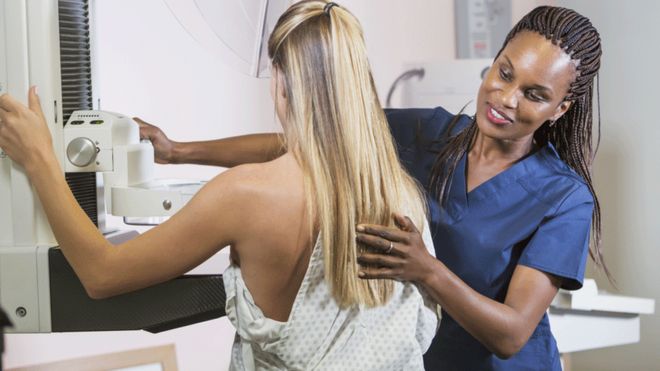AI used to detect breast cancer
 |
| Photo credits: GETTY IMAGES |
US scientists are using artificial intelligence to predict whether breast lesions identified from a biopsy will turn out to cancerous.
The machine learning system has been tested on 335 high-risk lesions, and correctly diagnosed 97% as malignant.
It reduced the number of unnecessary surgeries by more than 30%, the scientists said.
One breast cancer specialist said that the research was "useful".
The machine learning system was trained on information about such lesions, the system looks for patterns among a range of data points, such as demographics, family history, biopsies and pathology reports.
"Because diagnostic tools are so inexact, there is an understandable tendency for doctors to over-screen for breast cancer," said Regina Barzilay, MIT's Delta Electronics Professor of Electrical Engineering and Computer Science, and a breast cancer survivor herself.
"When there's this much uncertainty in data, machine learning is exactly the tool that we need to improve detection and prevent over-treatment."
In the US alone, 40,000 women die from breast cancer each year, but when cancers are found early enough they can often be cured.
Mammograms play a crucial role in detecting such cancers but they also throw up false positives, such as lesions that appear suspicious.
Once operated on, many such lesions turn out to be benign.
"To our knowledge, this is the first study to apply machine learning to the task of distinguishing high-risk lesions that need surgery from those that don't," said Constance Lehman, professor at Harvard Medical School and chief of the Breast Imaging Division at MGH's Department of Radiology.
"We believe this could support women to make more informed decisions about their treatment, and that we could provide more targeted approaches to health care in general."
Debashis Ghosh, a consultant breast surgeon based at the Royal Free London hospital, said the technology was good but may be of more use in the US than in the UK.
"Here we have less than 5% of patients who have these surgeries, whereas it is 30% in the US.
"We try to make a definite diagnosis before we operate but this technology is definitely useful where there is a lack of expertise."
Source: BBC



Comments
Post a Comment